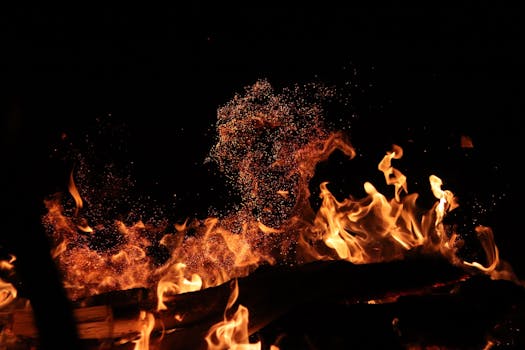+17162654855
+17162654855
DMV Publication News serves as an authoritative platform for delivering the latest industry updates, research insights, and significant developments across various sectors. Our news articles provide a comprehensive view of market trends, key findings, and groundbreaking initiatives, ensuring businesses and professionals stay ahead in a competitive landscape.
The News section on DMV Publication News highlights major industry events such as product launches, market expansions, mergers and acquisitions, financial reports, and strategic collaborations. This dedicated space allows businesses to gain valuable insights into evolving market dynamics, empowering them to make informed decisions.
At DMV Publication News, we cover a diverse range of industries, including Healthcare, Automotive, Utilities, Materials, Chemicals, Energy, Telecommunications, Technology, Financials, and Consumer Goods. Our mission is to ensure that professionals across these sectors have access to high-quality, data-driven news that shapes their industry’s future.
By featuring key industry updates and expert insights, DMV Publication News enhances brand visibility, credibility, and engagement for businesses worldwide. Whether it's the latest technological breakthrough or emerging market opportunities, our platform serves as a bridge between industry leaders, stakeholders, and decision-makers.
Stay informed with DMV Publication News – your trusted source for impactful industry news.
Energy

Iran Nuclear Program: UN Inspector Warns of Potential Uranium Enrichment Resumption Within Months
The international community is on high alert following a stark warning from a UN weapons inspector. The inspector, whose identity remains undisclosed for security reasons, has indicated that Iran could restart its uranium enrichment program at a significantly advanced level within a matter of months. This alarming development reignites concerns about the potential for Iran to develop nuclear weapons, significantly escalating existing geopolitical tensions.
The revelation, reported by multiple reputable news sources, has sent shockwaves through global capitals. The potential for Iran to quickly ramp up uranium enrichment, a crucial step in the nuclear fuel cycle, raises serious questions about the future of the 2015 Iran nuclear deal, officially known as the Joint Comprehensive Plan of Action (JCPOA). The JCPOA, designed to curb Iran's nuclear ambitions in exchange for sanctions relief, has been significantly weakened since the United States withdrew from the agreement under the Trump administration in 2018.
The prospect of Iran resuming advanced uranium enrichment carries several grave implications:
Increased Nuclear Threat: Higher levels of enrichment bring Iran closer to the threshold required for a nuclear weapon. This dramatically increases the risk of regional instability and a potential nuclear arms race in the Middle East.
Erosion of International Trust: A resumption of enrichment would severely damage Iran's credibility and further erode international trust in its commitment to non-proliferation efforts. This could lead to harsher sanctions and further isolation.
Heightened Geopolitical Tensions: The development is likely to further escalate tensions with Israel, Saudi Arabia, and other regional rivals, raising the possibility of military conflict. The US and its allies will likely respond with increased military presence and diplomatic pressure.
Impact on Global Security: The potential for nuclear proliferation in the Middle East has global security implications. The spread of nuclear weapons technology to unstable regions poses a significant threat to international peace and stability.
The UN’s International Atomic Energy Agency (IAEA) has been tasked with monitoring Iran's nuclear activities. The IAEA's reports have been crucial in tracking Iran's compliance with past agreements and providing crucial evidence for international sanctions. The UN Security Council, currently grappling with this escalating crisis, will likely be central in any attempts to de-escalate the situation.
The future of the JCPOA, already significantly compromised, hangs precariously in the balance. A full resumption of enrichment activities could effectively end any hope of reviving the agreement in its current form. International efforts to negotiate a renewed or revised agreement are likely to face significant challenges given the current circumstances.
While Iran maintains its adherence to the principles of peaceful nuclear energy, the motivation behind a potential enrichment program resumption remains a subject of speculation and international debate. Some speculate that the move is a response to perceived breaches of the agreement by Western powers. Others suggest that it is a strategic maneuver to exert pressure on the international community and secure favorable concessions. Regardless of the motives, the consequence – an increased risk of nuclear proliferation – remains a significant concern.
Uranium enrichment is a complex process that increases the concentration of uranium-235, the fissile isotope used in nuclear weapons. Naturally occurring uranium contains only a small percentage of uranium-235. Enrichment raises this percentage to levels suitable for nuclear reactors or, at higher levels, for weapons. The speed and level at which Iran can enrich uranium is a key indicator of its nuclear capabilities and intentions. The UN inspector's warning about Iran's ability to rapidly increase enrichment levels underscores the urgency of the situation.
The international community is scrambling to formulate a coherent response. This crisis calls for a multilateral approach involving diplomacy, sanctions, and increased monitoring. The following actions are under consideration:
Renewed Diplomatic Efforts: International powers might attempt to re-engage with Iran through diplomatic channels to prevent further escalation and seek a renewed agreement.
Strengthened Sanctions: The imposition or tightening of economic sanctions could aim to pressure Iran to abandon its enrichment plans.
Increased Surveillance: Enhanced monitoring of Iran's nuclear facilities by the IAEA and other intelligence agencies will be crucial to track their activities.
Military Deterrence: While military action remains a last resort, the possibility of a military response cannot be completely ruled out. This option, however, carries immense risks and would likely have devastating regional consequences.
The situation surrounding Iran's nuclear ambitions is rapidly evolving. The UN inspector's warning serves as a stark reminder of the potential for a significant escalation of the conflict. The international community faces a crucial test in preventing a disastrous outcome and ensuring regional stability. The coming months will be crucial in determining the future trajectory of this crisis and the overall security of the Middle East and the world.